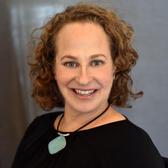Kids Are Struggling. As Parents of Kids with Disabilities Already Know, Schools Can Help.
This is the first in a series of pieces to mark Jewish Disability Awareness and Inclusion Month. Check back for more essays throughout the month of February!
I am the proud mother of two neurodivergent children, both of whom are on the autism spectrum. They are different from one another in almost every way, with one notable exception: they both require multifaceted, complex, and ever-changing interventions. As their primary advocate, I coordinate and connect the different components of their lives.
This requires that I stay on top of their Individualized Education Plans (IEPs), build relationships with their many teachers and therapists, understand the special education laws to ensure that my children’s rights are not violated, follow up with the many doctors and therapists who work with their educational team, and work with government disability providers outside the school system—all while working a full-time job and (somewhat) managing our household. After almost 15 years, I’ve grown accustomed to the never-ending cycle of phone calls, emails, and text messages. It’s just my normal, everyday experience.
Even though it’s exhausting and all-consuming, I’ve always felt incredibly fortunate to have easy access to my children’s educational team and other providers. I know what my children are learning and if they are struggling. Most importantly, I know how to reach out, and to whom, when a problem inevitably arises. I know that that might not be the case for all parents of neurodivergent kids— even though it should be.
My older son began high school this past fall—a big transition for any kid, let alone one who thrives on predictability and structure. To set him up for success, at the start of the school year my husband and I organized a meeting with his new education team, a legal right afforded to those with IEPs. This meeting was an opportunity to share tips, instructions, and best practices about our son beyond what is written in any document, and above all, communicate that we view the relationship between home and school as a partnership.
The twelfth-century Jewish philosopher Maimonides noted the importance of this type of relational education in The Book of Knowledge. Beyond transmitting facts and knowledge, he wrote, teachers are responsible for the overall well-being of students. Maimonides recognized that teaching is not a transactional process, but one that is deeply rooted in the relationship and rapport between student and teacher. These are some of the same tenets of modern-day special education.
At the start of the COVID pandemic, my kids, like many, struggled acutely. The abrupt change in their daily schedules, coupled with uncertainty about the future, did not sit well with them. Both experienced depression that manifested in different ways: One spontaneously cried and was generally sad, while the other had uncontrollable manic outbursts. Handling these big feelings and difficult behaviors was challenging for me. But thanks to the personal relationships I’d built with my kids’ teachers and therapists, coupled with knowledge of the resources available in our community, I was able to provide them with the help they needed. My older son, for example, developed a close relationship with his school social worker well before the pandemic started. At the start of lockdown when he was acutely depressed, this relationship was a lifesaver both to him and to our family, and it remains an important component in his overall wellbeing to this day.
Over the last two years, I have had many conversations with parents about the challenges their neurotypical children have faced with our new “normal.” Like my kids, some children have felt anxious and/or depressed. Still others have lost interest in engaging with the outside world.
Many of these parents first turned to the healthcare system for advice, not realizing that schools could help. When I suggested that they get in touch with their child’s guidance counselor or the school psychologist, most were completely unaware that those options were available to them— they assumed those resources were only for children identified as having “special needs.”
It is no wonder that parents of neurotypical kids are often not aware of the available resources. Schools usually reach out to parents only when there is a problem. In general, there are no mechanisms in place for parents and students to proactively develop relationships with teachers, which would allow educators to understand their students at a deeper level and help them more effectively when problems arise.
When the world changed abruptly in March of 2020, neurotypical students and their parents needed just these kinds of deep and intersecting relationships with educators. Instead, many were left helpless, without the scaffolding in place to help them navigate the system. Perhaps the neurotypical education system can take a page both from Maimonides and from the special education playbook and recognize students as complete people with individual needs and learning styles.
Although I am often tired and often overwhelmed by the demands of raising two neurodivergent children, I remain profoundly grateful for the high-quality, personalized, relational, and flexible education my children receive. I wish all parents and students could share this sense of being seen and heard by their schools.







I am a special education teacher and I thank you for your article. We don't often hear appreciation for our efforts. I wish you and your children all the best.
Rachel, you are one of the most amazing, strong, intelligent woman I have ever known. I remember you growing up little did you know the complex motherhood that lay ahead in your future. This article screams out perseverance for all parents but especially for those who have neurodivergent children; a topic near and dear to my old heart. God Bless you Rachel,and your family. There is always hope when so much love is given. Your article will serve as an inspiration to so many parents who struggle with these beautiful young people that have so much to accomplish if given the right tools to succeed!